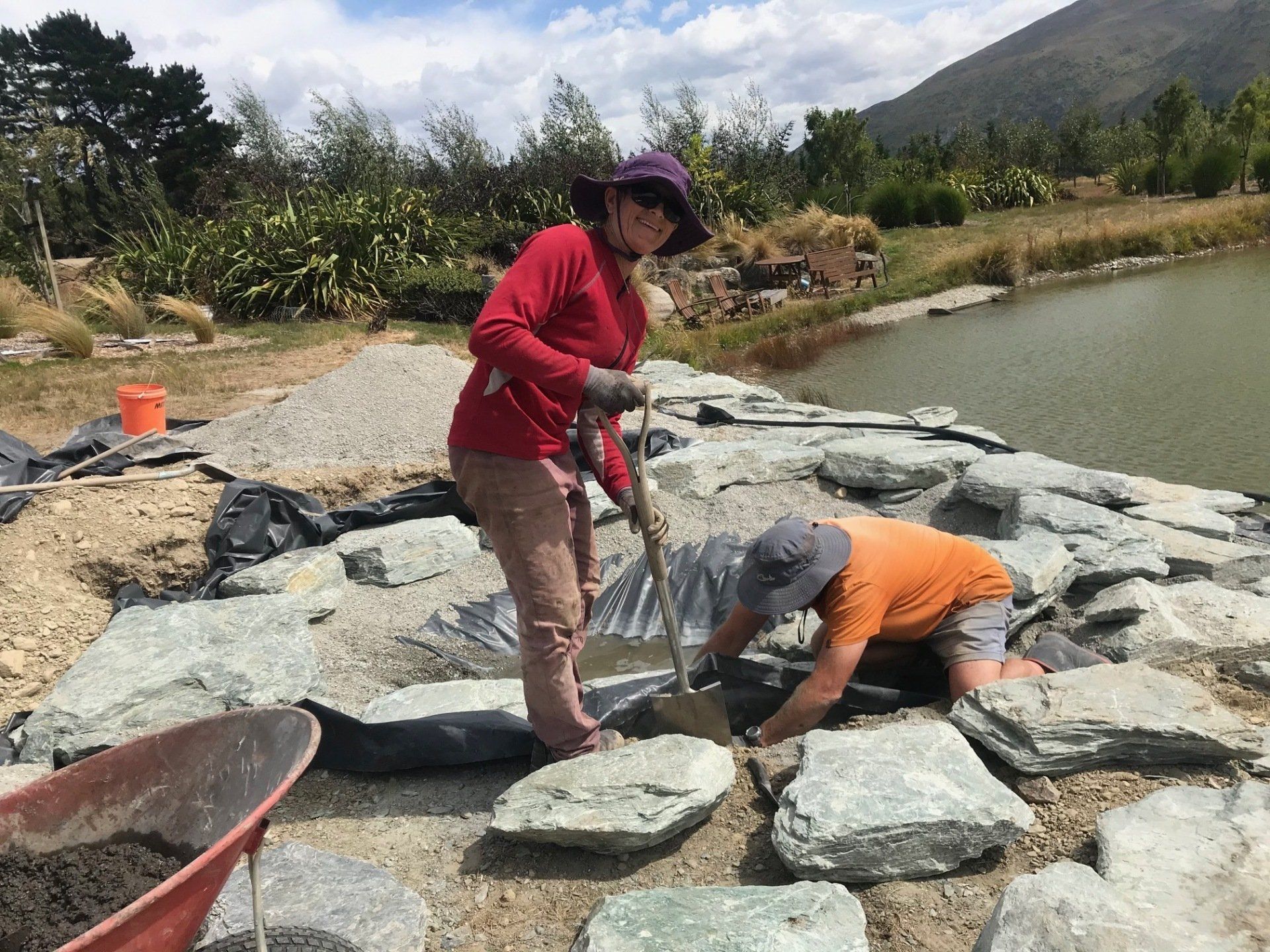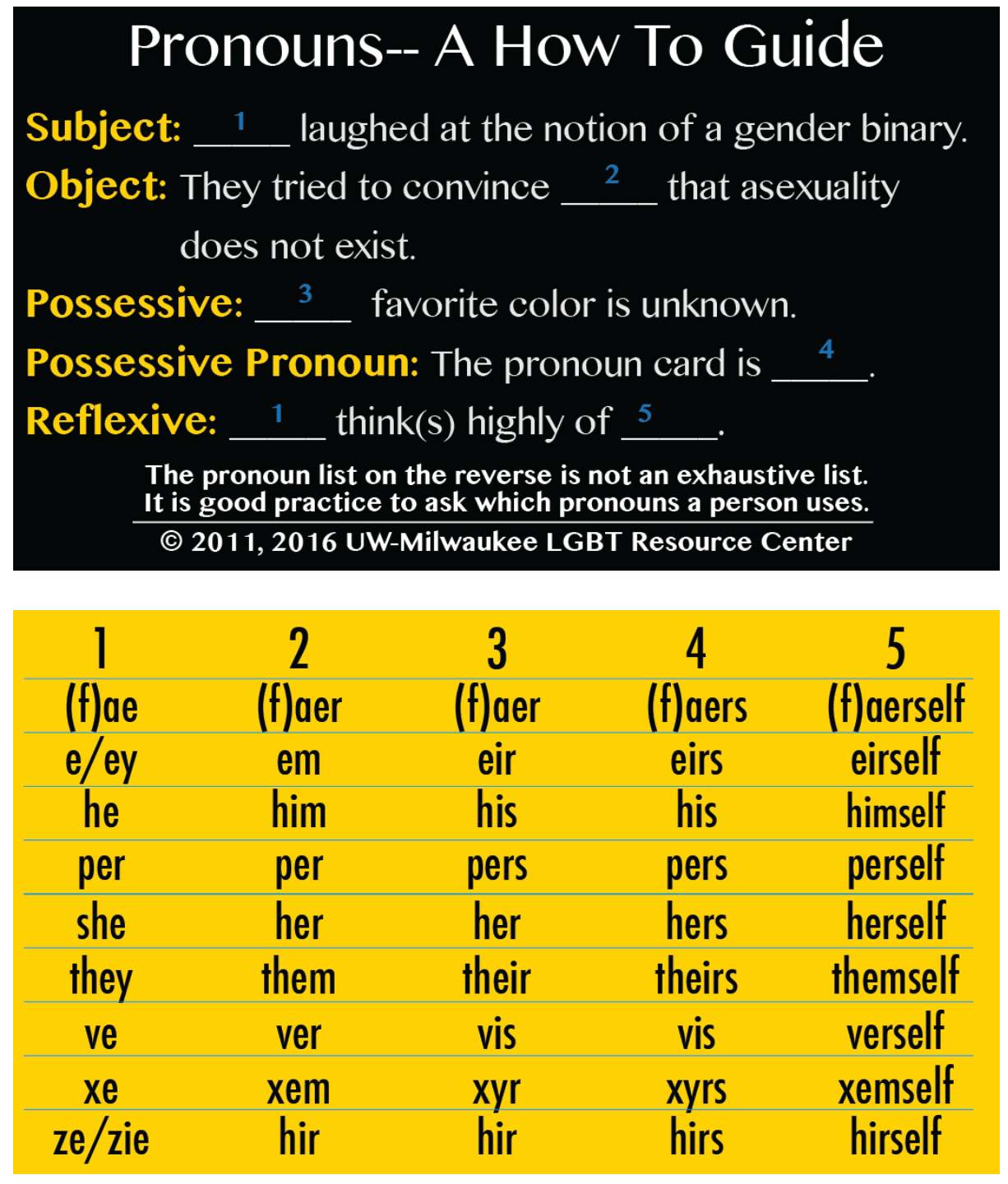How about thia?

I constantly find I am behind the times; I ascribe this to times moving rapidly. Recently I noticed Chris’s sister’s email signature included her preferred personal pronoun (which was ‘she’). When I mentioned this, Ximena said she had done it for about a year (I guess I wasn’t reading her emails very carefully) and other people at the University of Canterbury had been doing the same for several years. There was an opinion piece in Stuff about this yesterday, answering the question – Why would one put a pronoun in an email signature?
The reason is that the personal pronoun that people would prefer you use to describe them is not always self-apparent. It isn’t something that is announced in general conversation either – we don’t refer to ourselves in the third person very often, generally saying “I” in our conversations so there are no clues as to what gender a person considers themselves. Pronouns, like I in the first person, or he or she in the third person, are very useful. To mimic the Stuff article, it would be very clumsy if I told you that “Chris is very much looking forward to Chris’s G&T after Chris finishes the grouting that Chris wants to complete before Chris goes on Chris’s holiday”. Chris is very much looking forward to his G&T after he finishes the grouting, each and every day that he works on the grouting (or the mortaring that preceded the grouting) between the rocks in our mini-pond. Whatever the reason for the G&T, the use of ‘he’ streamlines the English in the written sentence.
However, if Chris considered himself female or gender neutral, reiteration of a pronoun that referred to him as male would be a continual emotional blow. A survey at the University of Canterbury found that 11% of their population consider themselves as ‘rainbow’ (the simpler term used to cover the LGBTTIQA+ acronym regarding diverse views on gender) and a further 6% are unsure. The same survey found that the mental health of those who identify as rainbow is considerably worse than those who are ‘cisgender’ i.e. identify as the gender to which their birth physiology assigned them.
StatsNZ started collecting information on gender identity in 2018 and will include questions on gender identify in the 2023 Census. In the 2018 survey they only found 3.5% of the population reporting as gender diverse , however there are a lot of factors that will influence people’s comfort in reporting themselves to be something that they feel is ‘not the norm’. (as StatsNZ themselves recognised). This very normalisation is one of the drivers is leading organisations to ask people to include their preferred pronoun in their email signature. Cisgender people taking up the practice will normalise it, as they remain in the majority. Their use will remove the risk that gender diverse people are the only ones indicating their pronoun, so become singled out.
One of the obvious questions becomes, what pronoun can be used that gives options beyond male and female genders; gender neutral pronouns would seem to be the safest route to go down. However, traditionally English only gives the options of ‘he’, ‘she’ or ”it’.
- ‘It’ is typically used for inanimate objects, or animals where we are not sure of their gender (using ‘it’ to objectify animals is a whole other discussion in itself); “it” is not linguistically appropriate for people.
- There are, in fact, a raft of pronouns that have been proposed, more recently as gender neutral pronouns including ve, xe, and ze.
- “One” has been proposed at various times but is considered to sound rather stilted.
- “Ou” was apparently suggested by William Marshall in 1789 , but clearly didn’t catch on, perhaps for obvious onomatopoeic reasons.
- “His/her” is clunky, and if you are agender then genderised pronouns wouldn’t seem right.
- “They” is in reasonably common use, but is also quite confusing as “they” is typically employed in English as a plural, not a singular. Saying “they” to refer to an individual causes a mental hiccup, for this writer at least.

Therefore I would like to propose “thia” as a new gender neutral, 3rd person singular pronoun. The Māori language doesn’t have the problem of English (and many other languages), as,Māori already has a gender neutral 3 person singular pronoun, namely “ia”. In the interests of creating a new word that doesn’t have cultural baggage I suggest that “thia” would be a blend of English and Māori entirely appropriate to New Zealand. I wonder what the actual pathway will be that produces the gender neutral pronoun that becomes commonly used in society. At Christmas I wrote about the use of the word ‘whanau’ and how I liked the freedom that this word seems to provide, as did the word ‘partner’ when ‘invented’ in the 1980s for use as ‘sexual partner’ rather than ‘husband/wife, boyfriend/girlfriend’. There’s a good reason that language constantly morphs and shifts – it allows the changes in societal concepts to move into common parlance.
Talking of changing and shifting, this has been quite the week, hasn’t it. On Saturday we were all happy in our, apparently, COVID-free communities. On Sunday we heard of a community case and by midnight Auckland went into the low-grade lockdown of COVID Alert Level 3, while the rest of the country shifted to Alert Level 2. It doesn’t matter how much you know new community outbreaks might be a possibility, it doesn’t really prepare you for it happening. It’s just like, as I have previously referred to, being a geologist does not prepare you emotionally for the earthquakes you are quite intellectually sure are going to occur.
By the middle of the week, however, it appeared that the outbreak was contained, even if we will probably never know the specific source. Vast numbers of closely connected, distantly connected people, and other people worried they might be sick, were tested. Only four further people tested positive during the week, and all were closely connected to the original family of three who got COVID. The country breathed a collective sigh of relief as Cabinet stepped Auckland down to Level 2 and everywhere else to Level 1. Further sighs of relief are audible across the airwaves as the first COVID vaccines (Pfizer) were administered from Friday, initially to vaccinators and then to border workers.
It feels like we are in a time of change. We slept through about two decades, buoyed by fair economic winds and a lack of major issues or existential crises on which to focus. Now COVID challenges the world, climate change roars up behind it, and no-one has any idea which way the economy will head. Times of change free up people’s thinking – everything is more easily questioned as fewer things are certain. Let’s not place a value judgment on such possibilities, thia says, with hope.





